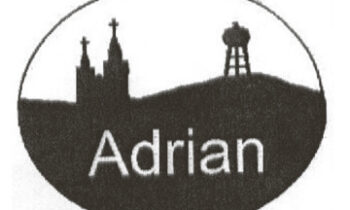By Deb Kroon
Review Staff Writer
The month of April is an important month to many awareness organizations. Two in particular that stand out for one local family are Parkinson’s Awareness and Donate Life Awareness, as their loved one, Mike Bullerman, dealt with both during his short life. One while he was living and the other upon his death.
Mike lived with Parkinson’s Disease for more than ten years. He was never happy about his diagnosis but he refused to let this terrible disease defy him. Parkinson’s Disease affects the way you move. It happens when there is a problem with certain nerve cells in the brain. Normally, these nerve cells make an important chemical called dopamine. Dopamine sends signals to the part of your brain that controls movement. It lets your muscles move smoothly and do what you want them to do. When you have Parkinson’s, these nerve cells break down. You no longer have enough dopamine, and you have trouble moving the way you want to. Parkinson’s is progressive, which means it gets worse over time. But usually this happens slowly, over many years.
No one truly knows the cause of Parkinson’s Disease, which makes it hard to prevent or find a cure for. There are many symptoms: Tremors, a shaking or trembling that may affect your hands, arms, or legs. Stiff muscles with mild to severe pain, slow movement, problems with balance or walking, problems with reasoning and sometimes just the basic thought process are other symptoms. Mike’s daughter Jill said, “Many people immediately think of tremors when they hear Parkinson’s disease but that was one of the symptoms Dad did not have.” Jill describes Parkinson’s as a puzzle. Each person is given their very own puzzle map but not the pieces to complete it. A person must find the right treatment to complete their own puzzle to live a full life. Even then, the puzzle sometimes changes and you start over from square one. “This happened to Dad many times,” explained Jill. “You have to take the medication multiple times a day, at exact times, making sure not to take it too close to a meal or waiting long enough after a meal. Food effects the absorption of the medication, so you have to be diligent in order to get the full effect.”
In addition to the pharmaceuticals, exercise is an important part of treatment. Mike worked side by side farming with his wife Toni in the early years of his Parkinson’s, which helped him stay in shape. When his son, Dallas took over the family farm, Mike turned to a hobby he had enjoyed all his life to keep himself in shape. That hobby was hunting. Hunting and wildlife quickly turned to a passion for Mike. He always had a love for animals, but he had a greater appreciation for them now. Being out hunting kept his mind off his disease and gave him a sense of calm, not to mention it was a lot of fun and some great relationships were formed. Dallas and Jill have both taken up their dad’s love for pheasant hunting. “We even got my sister Brandi out there to walk along with us last season.” Jill said with a smile. “Even though she doesn’t like hunting we wanted her to see what Dad enjoyed in just being out there.”
Another program that is offered is the BIG Program for Parkinson’s disease. It is a program that teaches you the correct way to exercise and stretch muscles and after completing the program Mike did his exercises and stretches every morning. Mike searched to find the right doctor and hospital that fit with his Parkinson’s disease puzzle, and finally did. In the six months before his death he was at his absolute best since being diagnosed. His determination was paying off, but that was about to be cut short.
In September of 2017, Mike was in an accident that would eventually take his life. Toni, Dallas, Brandi and Jill knew how Mike felt about the possibility of helping others. When the family was asked about the possibility of donating Mike’s organs, “there was no hesitation in saying yes,” Jill said. “We knew Dad would want to help someone else have the chance at life or in some way help with research for finding a cure for Parkinson’s Disease.” Jill continued, “when we sat down to meet with the Life Source team, we still had hope that Dad would wake up. We didn’t have a lot of time to think things over. It was a real blessing that we all knew what Dad wanted and were in agreement.”
Nearly 120,000 people nationwide are waiting for lifesaving organ transplants. Without the generosity of organ donors and their families, transplants wouldn’t be possible. This is something the living think about and often people plan for, but until tragedy strikes, you really don’t know what is involved.
Life Source is an organization dedicated to working with hospitals, transplant centers and donor families to facilitate the gift of life. If a patient meets the criteria to become a donor, one of the Life Source clinical team members goes to the hospital to meet with the family and discuss the opportunity their loved one has to save lives. One touching coincidence, this lady who met with Toni and her family is that fifteen years earlier, this same lady, who was starting off her career as a nurse, had taken care of Tara Bullerman, Mike and Toni’s niece. Donate Life America works with Life Source to find recipients for organs. Although different organizations, they work together to give someone a chance at life.
“In Dad’s case,” Jill went on, “his kidneys and both lungs could be given to someone and any other remaining organs that couldn’t be given to someone went to research at the University of Minnesota.” The process was put into motion to find recipients for Mike’s lungs and kidneys. “You don’t think about the amount of time this process takes,” Jill said. “Miracles go both ways — we, his family were praying for a miracle recovery and the recipient’s family was praying for someone to give their loved one the organ to live.”
“We were notified when recipients had been found. One of his kidneys was to go to a lady in Arizona, one kidney to a man in Huron, SD, and both his lungs to a fifty-seven year old man in Ohio. One thing we learned from this experience was that the person who receives an organ donation has to go through a tough, lengthy process to even get on the donor list. That alone makes them worthy of your loved one’s organs.”
Once the recipients were identified, there is a such a narrow window of time. “The whole process is so time sensitive,” Jill said. “We all suited up and went into surgery to be with Dad as he was removed from his life support systems. Every minute seemed like ten, because from the time Dad was removed from life support there is approximately one hour for him to pass away. If that hour doesn’t happen like it needs to, the last forty-eight hours of anguish were for nothing. I stress to the importance of our small towns rescue teams. If not for them and their quick actions at the time of Dad’s accident, absolutely none of this would have been possible. We are so lucky to have such great first responders” Jill said.
“Before Christmas we received a letter from the man in Huron who received one of Dad’s kidneys,” Jill said. “He said, ‘I went in for surgery… the kidney started to work immediately. I felt better right away.’ It was the first Christmas in a long time that he felt good. ‘I got a chance to bond with someone I will never meet,’ the man said. ‘How do you thank someone for a second chance?’”
“It’s really cool, the similarities between this man and Dad” Jill explained. “He is a hunter. He grew up on a farm. He has grandchildren. This person is living because Dad gave him a gift.”
The day before Mike was taken off of life support, the family’s Life Source person along with Donate Life held a private ceremony honoring Mike’s organ donations. The whole family attended the service in Sioux Falls. During the service a Donate Life flag was raised in Mike’s honor and was flown for twenty-four hours before being presented to the family as a reminder that although Mike’s life was cut short, he lives on in the people whose lives he saved.
Jill told of another experience. “This strange thing happened in a waiting room. We go into this waiting room and there in the middle of the room sat a lady by herself. We noticed her but didn’t say anything, we were all absorbed in our own grief. There were probably close to thirty of us. We were all a mess! Lots of tears, laughter, noise, utter chaos. We just took over the room around her. Afterwards, Brandi mentioned to Mom that lady had been sitting in the room the entire time. Mom felt she should go and apologize to this lady for subjecting her to our grief. This complete stranger told Mom she didn’t mind at all. She explained that two years earlier she had received an organ donation. She felt honored to experience what the donor’s family goes through. It gave her a new appreciation for the gift she had received.”
No matter how busy Mike was, he would stop what he was doing to help someone. “It will only take a minute” was one of Mike’s favorite phrases. “Sometimes it would be so frustrating,” Jill said. “It always seemed to take longer (you knew it would) when you were busy and your impatience level was running high. You didn’t want to hear ‘it will only take a minute’. But you know that it meant the world to the person he took time for. If it was a big deal to you, he made it a big deal.”Jill concluded, “if we learned to live by Dad’s adage- ‘it will only take a minute’ – what an amazing life we would live. I try every day to remind myself to take that minute for someone.”
For more information on how to become a living donor, visit https://www.donatelife.net/register/






